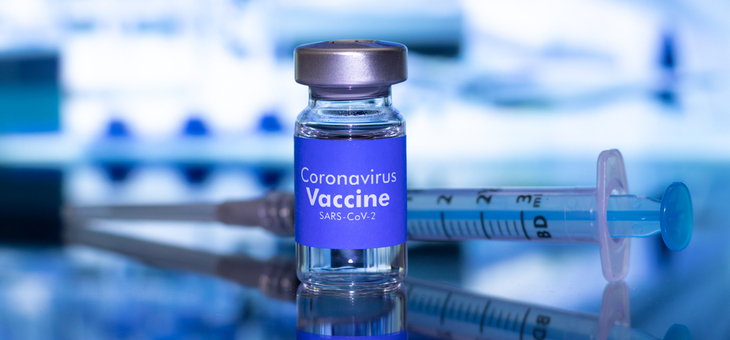The effectiveness of the current COVID-19 vaccines against the Omicron variant of the virus will not be known until late next week at the earliest as South African virologists continue testing, but vaccine manufacturers are divided about what they expect.
Regardless of the results that come out of the South African testing, all manufacturers have stated that they are working on tweaks, or in some cases, new vaccines to combat Omicron.
Moderna chief executive Stéphane Bancel told the Financial Times that its Spikevax vaccine was likely to be much less effective against the Omicron variants than previous incarnations.
Read: Allowing Omicron into Australia not yet an option for over-65s
He said that the large number of mutations in Omicron suggested that COVID-19 vaccines may need to be adjusted to retain their effectiveness.
“There is no world, I think, where [the effectiveness] is the same level …we had with Delta,” Mr Bancel said.
“I think it’s going to be a material drop. I just don’t know how much because we need to wait for the data. But all the scientists I’ve talked to … are like ‘this is not going to be good’.”
Read: Coatsworth says Australia should welcome new COVID variant
Pfizer director Scott Gottlieb was more confident that the vaccines would be able to offer protection against Omicron, telling American network CNBC there was no reason to think the variant would be vaccine resistant.
“There’s a reasonable degree of confidence in vaccine circles that [with] at least three doses … the patient is going to have fairly good protection against this variant,” Mr Gottlieb said.
BioNTech, the company that partnered with Pfizer to produce the Comirnaty vaccine, agrees that its vaccine will still offer significant protection against the new variant.
Read: Higher Medicare levy for those who refuse a vaccine?
BioNTech chief executive Ugur Sahin told Reuters that the Comirnaty vaccine would likely continue to offer strong protection against any severe disease from Omicron.
“We think it’s likely that people will have substantial protection against severe disease caused by Omicron,” Mr Sahin said.
He did, however, say that he expects lab tests to show some loss of vaccine protection against mild and moderate disease due to Omicron, but the extent of that loss was hard to predict.
He said the company was still working on an upgraded version of its vaccine even though it remained unclear if it would be needed.
“To my mind there’s no reason to be particularly worried. The only thing that worries me at the moment is the fact that there are people that have not been vaccinated at all,” Mr Sahin said.
The University of Oxford, which developed the Vaxzevria COVID-19 vaccine with AstraZeneca, concurred with the Pfizer/BioNTech judgement that there was no reason to suspect the Omicron variant would prove to be vaccine resistant.
In a statement, however, it did say it was ready to rapidly develop an updated version of its vaccine developed with AstraZeneca if necessary.
“Despite the appearance of new variants over the past year, vaccines have continued to provide very high levels of protection against severe disease and there is no evidence so far that Omicron is any different,” the University of Oxford said in its statement.
“However, we have the necessary tools and processes in place for rapid development of an updated COVID-19 vaccine if it should be necessary.”
On Friday, federal health minister Greg Hunt told Sunrise that all of the Omicron cases in Australia were “asymptomatic or very mild”.
Mr Hunt also said that the early evidence was suggesting that the current vaccines offer “very good protection” against the new strain of the virus.
Federal chief medical officer Professor Paul Kelly also announced on Friday that the Australian Technical Advisory Group on Immunisations (ATAGI) had not changed its recommendations on the booster shot timeline in light of the Omicron variant reaching our shores.
It means that Australians will continue to be offered their booster shot six months after their second dose of the COVID vaccine.
“We have no evidence at the moment that the vaccine does not work and, as far as we know, the vaccine works against this new virus,” Prof. Kelly said.
Do you think we will need vaccine boosters to protect us from the Omicron variant? Why not share your thoughts in the comments section below?
If you enjoy our content, don’t keep it to yourself. Share our free eNews with your friends and encourage them to sign up.

